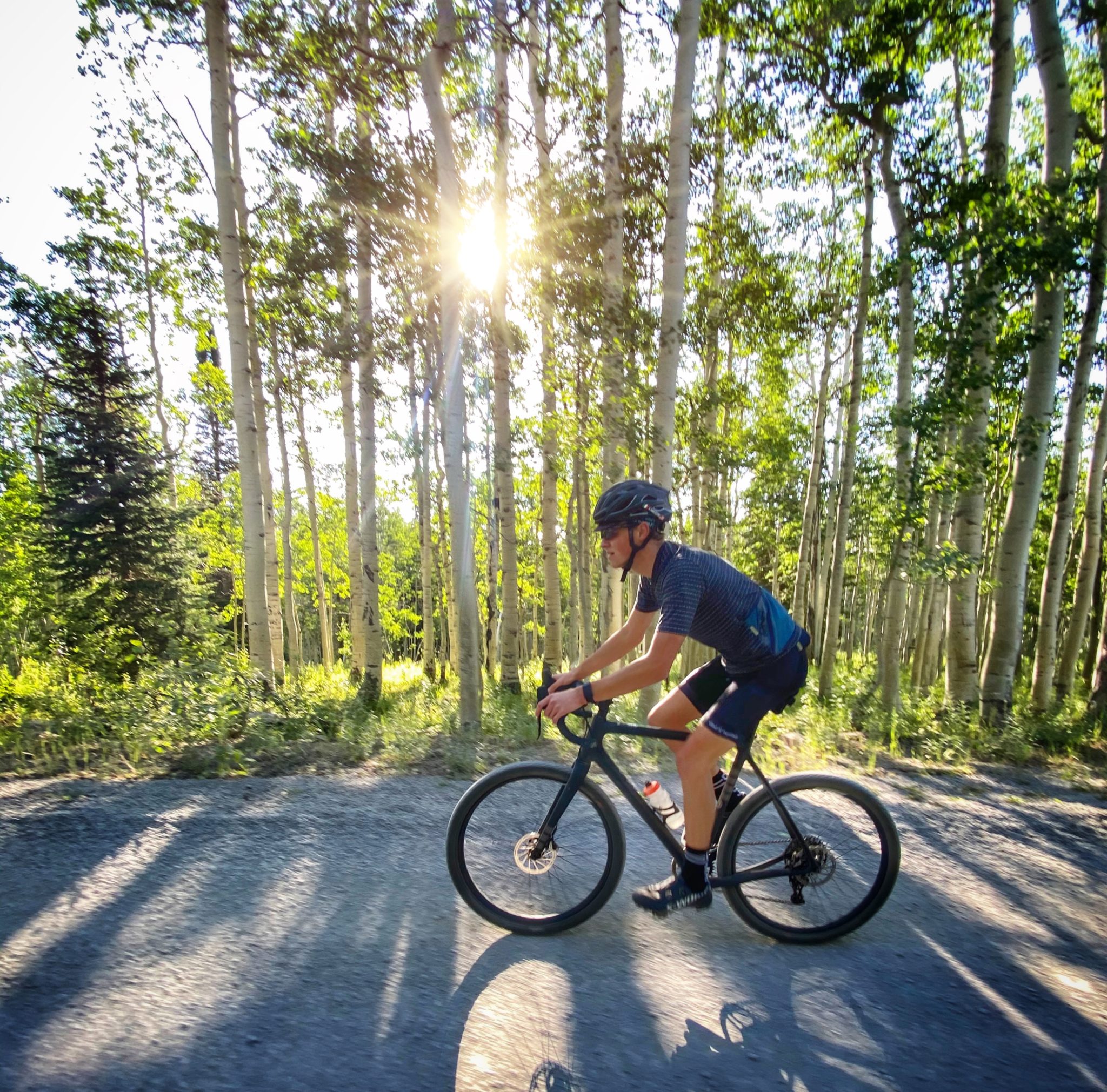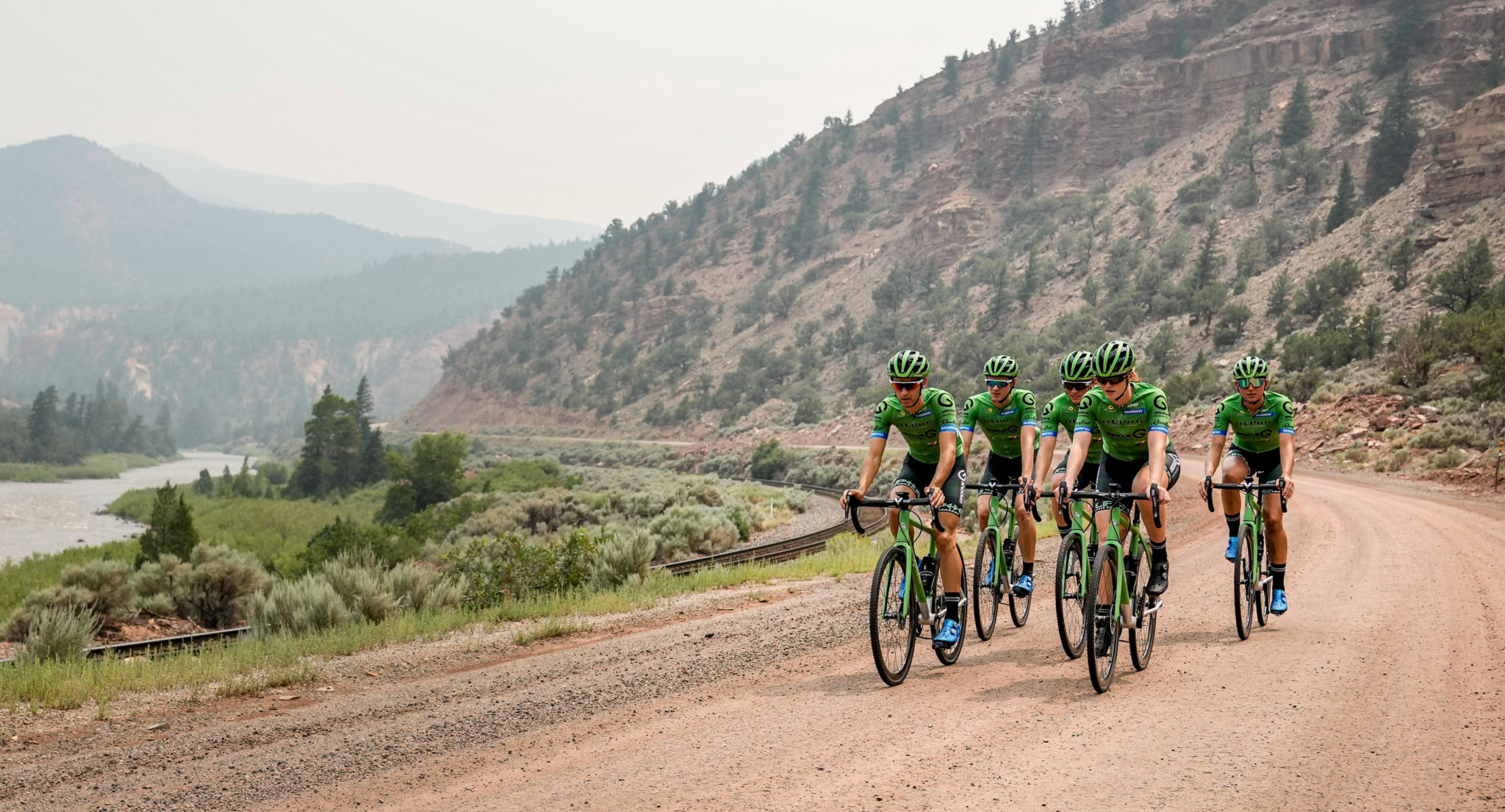Cycling For A Sustainable Future
At DNA, we are continually refining the boundaries of modern cycling apparel. Our desire to create the perfect fit has led us on a journey combining traditional craftsmanship, sustainable manufacturing, and innovative technology in bringing the highest-performing custom apparel to cycling teams and enthusiasts around the world.
Whether you ride for sport, personal enjoyment, or to escape into a state of mindfulness and reflection, we believe that cycling in its purest form innately strengthens our capacity to appreciate the beauty in the world around us.
Not only does this natural state of flow and mindfulness help shape our perspective and design language, becoming more self-aware through cycling can make the world around us, including the cycling community, a better and more sustainable place.
Whether you ride for sport, personal enjoyment, or to escape into a state of mindfulness and reflection, we believe that cycling in its purest form innately strengthens our capacity to appreciate the beauty in the world around us.
Not only does this natural state of flow and mindfulness help shape our perspective and design language, becoming more self-aware through cycling can make the world around us, including the cycling community, a better and more sustainable place.

Take the Pando or Trembling Giant, an old forest located in central Utah on the Fishlake National Forest Reserve, approximately 1 mile southwest of Fish Lake on State Highway 25. This unique and large colony of individual male quaking aspen trees possesses identical genetic markers and a massive underground root system, all originating from a single seed. At 100 acres in size, weighing more than 14 million pounds with more than 40,000 individual trees, this extensive system has impressively withstood hundreds of years of weather and erosion. Now, it’s unfortunately thought to be dying by a combination of factors, including drought, grazing, human interference, and fire suppression. Fortunately, even after a tree dies, the nutrients from the decomposing wood and leaves return to the soil, where a new generation of flowering plants and trees can benefit.
While it can be difficult to rebuild an ancient native forest, this naturally occurring phenomenon teaches us insightful lessons about the earth and how we can do our part to make it a better and more sustainable place to live and enjoy our cycling passion.
It’s no secret that collective action can bring about monumental change. Like this massive ecosystem of connected living organisms, there is great power in numbers to produce change. Together, as a brand and cycling community, we believe that it’s our responsibility to help reduce and offset carbon emissions and manufacturing pollution. Both at a local and global level, understanding we are all a part of a connected living ecosystem brings greater implications for individual choices that we can’t always envision but should consider.
While it can be difficult to rebuild an ancient native forest, this naturally occurring phenomenon teaches us insightful lessons about the earth and how we can do our part to make it a better and more sustainable place to live and enjoy our cycling passion.
It’s no secret that collective action can bring about monumental change. Like this massive ecosystem of connected living organisms, there is great power in numbers to produce change. Together, as a brand and cycling community, we believe that it’s our responsibility to help reduce and offset carbon emissions and manufacturing pollution. Both at a local and global level, understanding we are all a part of a connected living ecosystem brings greater implications for individual choices that we can’t always envision but should consider.

Start with what you have control over, locally and in your everyday life. Like the decomposing wood from dying Pando, returning nutrients to the soil for a new generation of flowering plants and trees, no effort goes unwasted. Given sports, in general, have a carbon footprint, we believe that our collective responsibility is to help reduce and offset this impact.
One of the ways we work to offset this impact is by empowering local communities and riders through sustainable partnerships, like The Alpha Bicycle Co’s Groove Silverthorne SHIMANO CX Team. This group of riders and coaches have taken exemplary steps to lessen their negative environmental toll by getting outside the scope of cycling and making an impact close to home.
One of the ways we work to offset this impact is by empowering local communities and riders through sustainable partnerships, like The Alpha Bicycle Co’s Groove Silverthorne SHIMANO CX Team. This group of riders and coaches have taken exemplary steps to lessen their negative environmental toll by getting outside the scope of cycling and making an impact close to home.

Bill Schieken @cxhairs
Recently, the group partnered with May Ranch, a large dispersion of land located in Lamar, Colorado, purchasing carbon credits to offset their team travel emissions and fuel consumption. For every one carbon credit purchased, one metric tonne of carbon dioxide is prevented from entering the atmosphere, which is an impressive feat and commitment on the team’s behalf. For a recap of their efforts, watch here.
Supporting local communities, national riders, and teams working to improve their community is at the core of our mission and personal commitment, extending from our personal efforts to uphold the highest levels of sustainable manufacturing and sourcing practices.
Supporting local communities, national riders, and teams working to improve their community is at the core of our mission and personal commitment, extending from our personal efforts to uphold the highest levels of sustainable manufacturing and sourcing practices.

As a result, the following sustainability guide outlines our commitment to making the world a better and more sustainable place for all while delivering the highest-performing custom apparel.
100% BIODEGRADABLE
All of our products come in a 100% biodegradable polybag. This environmental alternative to a traditional plastic bag ensures that you can shop responsibly and not worry about where your bag will end up after you have finished using it.
BLUESIGN CERTIFIED
Bluesign is a certification out of Switzerland that holds factories to the highest standards. Bluesign analyzes four different steps of the supply chain. They start with resource use and help factories reduce their water, chemical, and energy use. Then they move on to occupational health and safety to ensure that the factories have the highest safety standards and protect workers from any chemicals. They control pollution output by looking over the water and air emissions. Lastly, they oversee consumer health by ensuring all textiles meet the strictest chemical safety requirements. By purchasing a Bluesign certified product you know that rigorous steps were taken to ensure the product is made ethically.
CONFIDENCE IN TEXTILES
Confidence in Textiles Standard 100 is a certification by OEKO-TEX, a Swiss-based company with partner institutes in over 18 countries. This certification means that every piece of your garment is inspected (every thread, zipper, piece of fabric) to ensure that it contains no harmful substances. This globally standardized certification takes into account regulated and non-regulated substances to ensure there are no harmful substances in contact with you or your home.
GLOBAL RECYCLING STANDARD CERTIFICATION
Our Dolomiti fabric is produced in a factory with a Global Recycling Standard Certification. This certification from the Netherlands certifies that this factory follows a high standard when it comes to recycling in their storing, dyeing, trading, finishing, washing, knitting, and processing.
The factory has an internal Environmental Policy that outlines all the steps they take to ensure they are operating in the most sustainable way possible. This includes complying with all environmental regulations, using raw and recycled materials, investing in independently produced power, recovering and saving heat and water, and monitoring and minimizing pollution.
The factory has an internal Environmental Policy that outlines all the steps they take to ensure they are operating in the most sustainable way possible. This includes complying with all environmental regulations, using raw and recycled materials, investing in independently produced power, recovering and saving heat and water, and monitoring and minimizing pollution.


